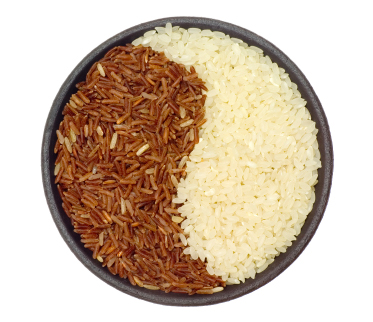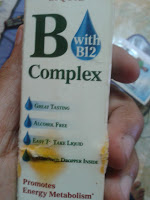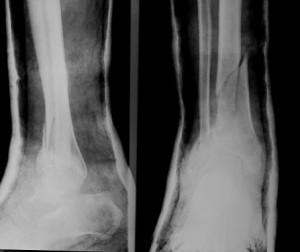Shrink Your Fat!
In my last post I spoke about how weight loss is really about "thinning out" the layer of fat that's lying on top of your muscle. I also mentioned how that layer can be as thick or as thin as we allow it to be -- several inches to a foot or more off the muscle.
So when we finally decide it's time to "thin out" that layer of fat (lose weight), what actually happens and where does the fat go?
Our fat tissue is made up of billions of microscopically tiny round cells all stuck together. These cells are soft and yellow, and are filled with an oily liquid. Imagine many yellow balloons all bunched together, each balloon representing a fat cell. For the most part that's what fat cells would look like under a microscope.
Every person is born with a set number of fat cells. There are the lucky ones who are born with 10-12 billion fat cells, and then the less lucky who can be born with two to three times that amount. For the most part genes determine how many cells you are born with, but according to recent studies, scientists believe that a mother's diet and weight gain during pregnancy, can also determine the number of fat cells a person is born with.
Fat cells are where we store our excess food -- excess food meaning everything that we consume above what our body needs for general energy. (Food is our source of energy.) If 1500 calories is just the right amount of food/energy for you, and that's about what you consume daily, your fat cells will remain small and tight.
Unfortunately, fat cells expand. If you consistently eat more than what your body needs for general energy, your fat cells will expand... and will continue to expand even more if you continue to overeat. This is when you will start to see the scale going up and you will appear to be getting larger and softer. Your clothes will feel tighter or worse, you will need the next size or two up. Hopefully your cells have not yet expanded to the point of splitting. Yes, once fat cells have reached their maximum size, they can split. (Or more specifically, maxed-out fat cells prompt the body to produce even more fat cells.)
Scientists used to think that fat cells only split during the first year of life and overeating during puberty, but now it seems that they can split at any point in life. If you were lucky enough to be born with let's say 15 billion fat cells, and you maxed them out through overeating, you might now have 30 billion -- twice as many fat cells ready and waiting to be filled! This can continue on and on, and if it does, you've crossed the line from overweight to obese.
Unfortunately, there's no going back! You cannot get rid of fat cells -- even the newly-formed ones. They are there to stay. But here's the good news. You can shrink them! Whether you have 12 billion or 200 billion fat cells, you can make them all smaller and tighter, thus thinning out the overall layer of fat tissue all over your body.
How To Shrink Your Fat Cells
Regardless of your macronutrient preference (meaning, low carb/high protein or high carb/low fat, etc.), you still need to ultimately create a calorie deficit within your diet preference to shrink those fat cells! Sorry, there's just no getting around that fact. If you don't create that calorie deficit and you are still eating too many overall calories on your low-carb or low-fat diet (even if your choices are healthy) you WON'T lose the fat weight!
Here's how it works. Everybody needs a certain amount of energy (calories) to maintain their activity level while at their current weight. Let's say that you are overweight and consuming an average of about 2,500 calories every day. Well as long as you continue to eat 2,500 calories and your activity level remains the same, your weight will stay the same. So something has to change. Either your calorie consumption has to go down or your activity level has to go up. Most ideally, you'll want to combine the two. Either way you will want to net less than 2,500 calories by the end of your day -- every day.
Let's say that today, for example, that you ate 2,000 calories (500 calories less than normal) and burned 500 calories through additional activity (exercise) today, you've created a calorie deficit of 1,000 calories. Well, at least right now, your body still needs 2,500 calories worth of energy to get you through your day, but if there is a 1,000 calorie deficit going on, your body has to get that energy from somewhere. That somewhere is your fat cells. Remember, your fat cells are holding onto stored extra food from your past. Your fat cells will then start to release their stored energy -- that oily liquid I mentioned above -- and as they do, your fat cells shrink. Yeah!
By maintaining a calorie deficit of 1,000 calories everyday, you will shrink your fat cells to the equivalent of 2 lbs. of pure fat loss per week. 2 lbs. of pure fat loss is huge in size and volume -- bigger than you think. Obese individuals can lose more fat per week because they have the room to create a much larger calorie deficit with their food consumption alone.
Women -- do not eat less than 1,200 calories per day. Men, no less than 1,500 calories. If you want to create a bigger calorie deficit do so with more activity -- not less food. Eating less will start to contribute to nutritional deficiencies and a lowered metabolism.
Spread your calories out throughout the day -- three meals and one or two snacks. Make healthy food choices of moderate portion sizes. Your day should consist of:
- Non-Starchy Vegetables -- 7-9 servings a day. Examples: spinach, broccoli, green beans, tomatoes, peppers, garlic, cauliflower, etc.
- Fruit -- 2 servings a day. Examples: blueberries, strawberries, oranges, grapefruit, apples, bananas, peaches, etc.
- Lean Protein -- with lunch and dinner. Examples: 90 percent lean ground beef, filet mignon, chicken, turkey pork, fin fish and shellfish, eggs, low fat dairy, etc.
- Starchy Grains and Starchy Vegetables (the complex carbs) -- Examples: oatmeal, whole-grain cereals, whole wheat bread and pasta, brown rice, wild rice, sweet potatoes, beans, red potatoes, lentils, flax seed, quinoa, etc.
- Oils and Fats -- Examples: nuts and seeds such as almonds, walnuts, brazil nuts, sesame seeds, sunflower seeds; olive oil, flax seed oil, etc.
Eliminate or greatly reduce your intake of junk foods and sugar consumption on a daily basis -- sodas, juices, cakes, cookies, chips, pizza, candy, etc., and choose only minimally processed foods whenever possible. Save these junk foods for special occasions... holidays, weddings, parties and some Saturday nights. And remember, it's what you are eating most of the time that is going to make the difference in your weight and health. If you are eating healthy with moderate portions most of the time and occasionally overdoing it on a holiday or at a party, that one event won't be enough to "undo" all of your good days.
Recommendation -- Trying to lose weight or not, it's always wise to take a quality multi-vitamin/mineral supplement.
Keeping your body healthy and well nourished with healthy food choices will keep your metabolism working most efficiently. Combine this with a calorie deficit and watch your fat cells shrink. It all works together!
For more by Donna Mincieli, PTI, RD, click here.
For more on diet and nutrition, click here.
For more on weight loss, click here.
-
3 Secrets For Sustainable, Attainable Weight Loss
-
Low Carb Diet Plan - When More Is Better
When most people want to lose weight the first thing they usually
-
Wellness Diet plan Program – A basic guide towards the positive aspects of fat burning diets
The root flaw that all these fat burning diets fall victim to is the p
-
How To Achieve Weight Loss Without Going To The Gym
Do you know how much youd probably spend for a gym membership every ye
-
Weight Loss Supplements to Burn your Fat in One Month without Any Diet
May be the largely entrancing advantage
-
Training Supplements And Their Rising Popularity
The popularity of training supplements is rampant these days becau
- DON'T MISS
- Stomach fat – Your Questions Answered
- Spa Career
- Diet And Exercise Program For Permanent Weight Loss Part 2
- 5 Tricks To Tame Your Appetite
- Weight Loss Reduces Markers of Inflammation associated with Heart Problems
- Exercise Motivation Created Through Hypnosis
- Are Fad Diets Good for You?
- Holiday Wearing A Weight Loss Halo
- The Joy of Dieting: Eight Ways Your Diet Can Be a Gift You Give to Yourself
- Merck's Weight Loss Trial Reports Success, Side Effects




